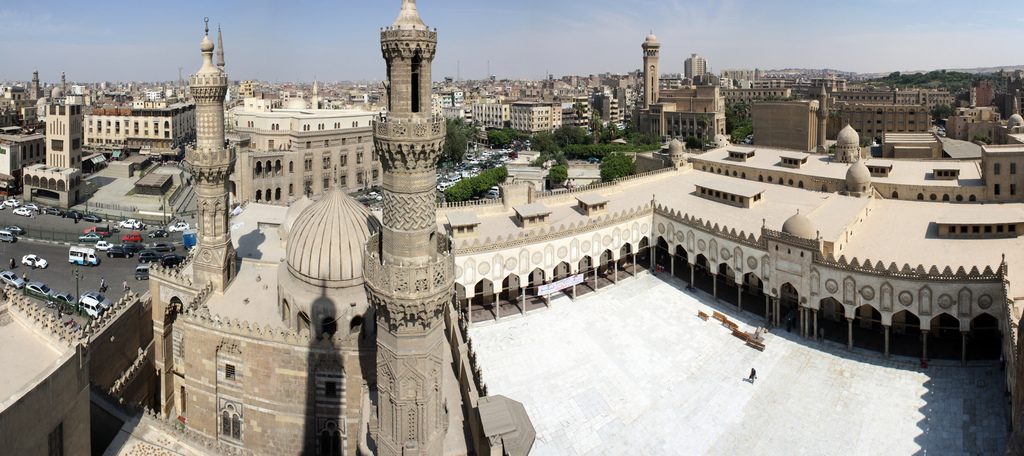
In the midst of the inflammatory events that Egypt has witnessed since Friday January 25, 2013, the president called for a national dialogue in his speech Sunday night. The opposition, the National Salvation Front (NSF), declined this invitation for several reasons; the most important of which is that there is no assurance that the results of this dialogue will be put into practice. This condition – that whatever results from the dialogue be implemented – actually has origins in Islamic Sharia; in the concept of ‘Shura’ or consultation.
Nearly all books on Islamic governance discuss the concept of Shura. This discussion revolves around two basic issues: is Shura mandatory (wajebah) or just recommended (mandobah)? And, is Shura binding (molzemah) or just a guide (moe’lemah?) On the first point, the prevailing opinion – which may even be the consensus – is that Shura is mandatory. Hence, in Islam, the ruler must resort to Shura to obtain the opinion of experts, politicians, and scholars. National dialogue, in fact, is a form of Shura. The second point, and this is the crux of the matter, revolves around the results of the Shura — whether this opinion is binding on the ruler or merely “a consultative opinion” (in contemporary jargon) or “a guiding opinion” (in the vocabulary of Islamic jurisprudence). This issue has many nuances, and this article lacks room to address all of them, but the prevailing opinion among jurists and Islamic scholars is that Shura is binding on the ruler. This means that the opinion resulting from consultation or dialogue is a binding opinion on the ruler, and he must enact it regardless of whether the opinion was the consensus or majority opinion of those consulted.
In my opinion, we desperately need to adopt this Islamic model in which the opinion resulting from Shura is binding on the ruler. Applying this model has many benefits, which include:
1. Binding Shura is one of the fundamental aspects of Islamic Sharia that have been neglected by many who reduce Islam to just its “legal” aspects. This is because Shura, as conceptualized in Islam as one of the pillars of system of governance in Islamic state, not only is the best guarantee against dictatorship and tyranny but also paves the way for true socio-political participation.
2. More closely related to our situation in Egypt, applying this model to President Morsi’s national dialogue would significantly diminish the current political tension. This, in turn, would clear the way for a "participatory political solution" through which the country would emerge from its current crisis because those participating in the dialogue would find it useful and feel that the ruling authority would respect its results. Moreover, President Morsi’s applying this model would dispel the fears held by most political forces in Egypt that he and the Muslim Brotherhood want to monopolize power at a time when it is wrong to do so. We are now in urgent need of participation, not exclusion . In addition, adopting this model would also distribute responsibility amongst all the political parties in Egypt. This is what would guarantee true participatory governance that enables the president to “contain” all parties underneath the umbrella of the ruling authority.
A true, inclusive dialogue is built on the parties’ agreement with one another to cooperatively search for alternatives and on the ability to negotiate. It would be well worth enacting the opinion resulting from this kind of dialogue, and this, in my opinion, is the best way to resolve the crisis facing Egypt.
Yussef Auf is an Egyptian judge and 2012 Humphrey Fellow at American University’s Washington College of Law. He is currently pursuing a PhD in Constitutional Law and Political Systems at Cairo University.
Photo: AFP
Image: azhar.jpg
